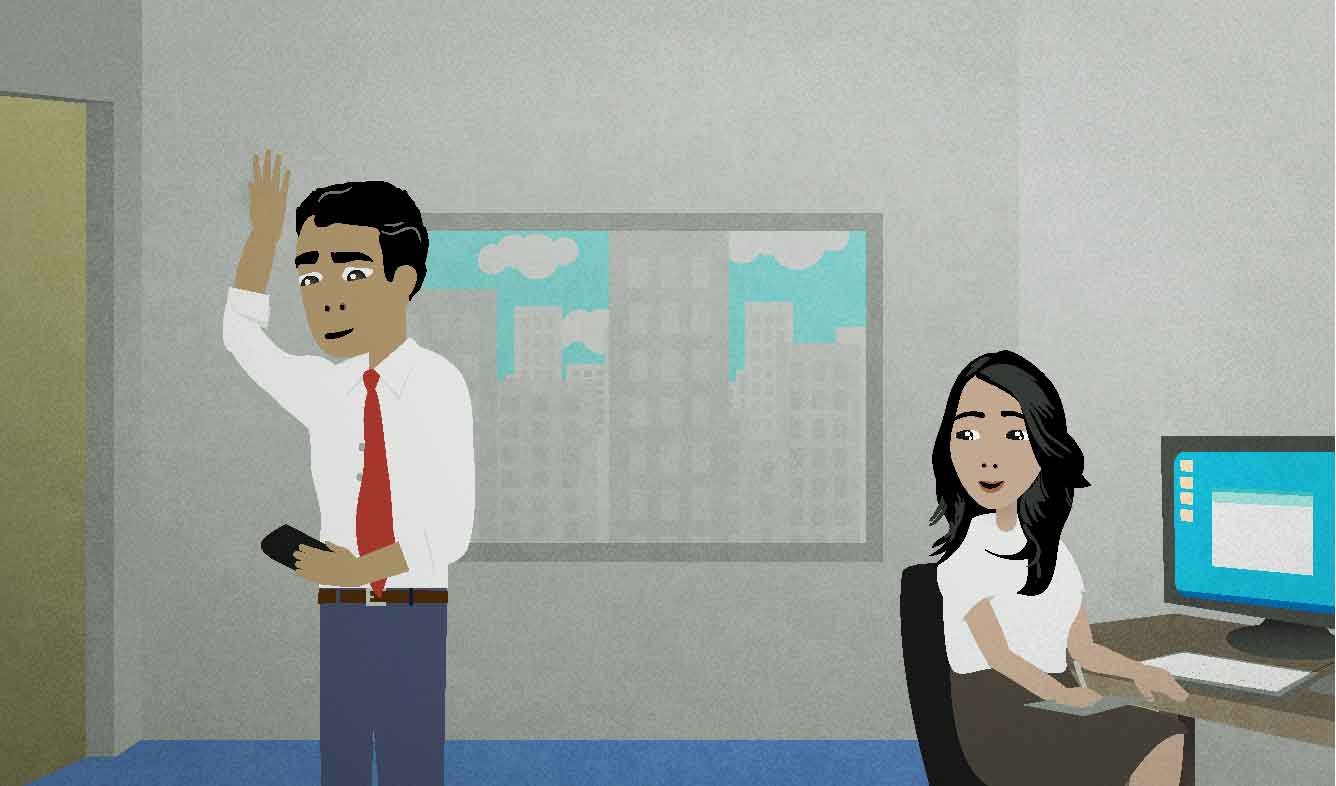“OK, well, I’ll let you get settled in.”
There's a new employee working under you. It's her first day at work. You've been explaining things to her for a while. Now you need to go back to your office to do some work. You say this so that you can leave.
OK, well, I’ll let you get settled in.
Want Video and Sound? Follow us on YouTube

Well
There are several uses for the word "well". One important use is to show that you are ready to finish a conversation. The end of a conversation might go something like this:
A: Well, I look forward to working with you.
B: Yeah, me too.
A: See you around.
B: Bye.
Some other examples of "well" used to end a conversation are:
OK.
One of the ways that English speakers use "OK" is to signal a change in the flow of conversation.
For example, before you begin a meeting everyone might be making small talk and chatting about different topics. To start the serious business part of the meeting, you can start with "OK".
You can also use "OK" when you want to:
- start a new topic of conversation
-
announce a decision
-
ask other people to make a decision
-
end a conversation
get settled in
"Getting settled in" to a place means becoming comfortable there. You "get settled in" to:
- a new city
- a new home
- a hotel
- a new job
In order to "get settled in", you might need to look around, figure out where everything is, organize some of your things, and so on.
